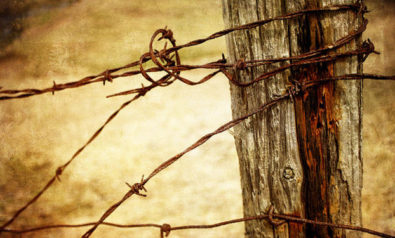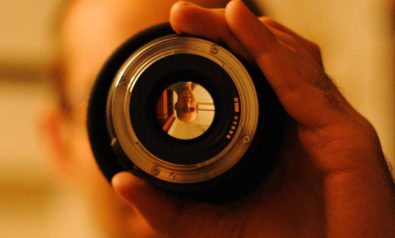A perspective on the values of morality, choice, and love, and their relevance in a mortal life.
Genesis 1:1-6:8
"All beginnings are difficult," taught the great Rabbi Ishmael of the Talmud. I'll say.
I'm a student who wishes to be a rabbi. I'll leave my religious agenda for other articles; for now, I note that I've been excluded from every rabbinical school in this favored land because I'm dating a non-Jew. Welcome to 1950, right? Or 1750. I know, all beginnings are difficult.
Love itself has not been easy. I'm gay, and I grew up in Northern Virginia in a climate in the '80s and '90s that I can only describe as hostile. My health teacher at Thomas Jefferson, a science magnet school, made it clear that it was not okay to be gay, and encouraged antigay harassment in class. It took me a long time to realize it was all right to be attracted to men, and even longer to realize that a life of commitment was even available to me in this society, no thanks to that health teacher. It took me even longer still to take the first steps on my journey toward love and commitment. All beginnings are difficult.
Love asks you to put all your eggs in one basket, foreclosing all other options, making a commitment to the exclusion of other potentialities. Love does not admit the possibility that someone better might come around the corner. Love does not care about better or worse; it asks you to focus on the relationship and build a life on that foundation.
Love is only one example, though perhaps the best example, of life asking you to make choices. Occasionally you get to hedge your bets in life, to play it safe. Most of the time, however, life asks you to choose what you want instead of what you do not want. Most of the time, you do not get to eat a little bit of every flavor of ice cream in the store, and if you tried, it would not be a pleasant experience. You have to pick what you want or get nothing of value.
Everything begins with a choice. And every beginning is difficult.
In this week's Torah portion, Bereshit, we read the story of Creation. Jewish mystical tradition teaches that before creation there was nothing but possibility. Creation happened when God chose certain forms over others, choosing to make humans the way we are instead of some other way, choosing the gravitational constant and the Planck constant and the speed of light over the infinitude of other values they might just as well have been. God chose us because God loves us.
Indeed, we learn in Talmud that God's main creative act after Creation has everything to do with love: the creation of a new family through the ceremony of marriage. Marriage is nothing if not an intentional limitation of options. Commitment means eating this ice cream cone, and not throwing it away when a more appealing flavor comes along, or when the store next door charges a nickel less.
This limitation can be difficult. We've all been in love (or thought we were in love) with more than one person at a time. It can be difficult to set priorities, to choose family over work, this career instead of that career, this flavor rather than that flavor, when we don't have the time, money, or appetite for them all. And most of the time we don't. We are finite and mortal.
As an adolescent I saw this limitation to mortality as a cruel existence. I still had so much to explore, to try, to dabble in. I still do. But now I think mortality is perhaps the crowning gift of creation, although it comes with pain. I want to live a good, full life, but I'm not sure living forever would be fun. The joy of lifelong committed love loses its meaning when the word "lifelong" loses its meaning. Today we are inspired and overjoyed by couples who stay married 50 years. Could you imagine a world in which someone comes along to say: Pishposh! I've been married 500 years! And the next couple has been married 5 million years, and so on endlessly, each achievement seeming extremely small next to the enormity of the next. Nor could immortal beings ever finish the Mona Lisa and put it on display, because it could always be touched up here and there– a triumph of triviality in the absence of priorities. And I'm not sure any human could keep a truly permanent commitment in the face of infinite time. Ultimately, there can be no maturity without mortality. No dignity without death; no commitment without choice; no love without limitation. To get anything, you must choose something. That is the stern law of mortality, but it is also the beautiful law of love. You win nothing if you always play it safe. A wise choice is better than an unwise choice, but failure to choose is often the most unwise choice of all.
At times this condition of mortality causes pain, but it is part of the process of the regeneration of life. The act of creation is partly an act of destruction, the destruction of less desired possibilities in favor of a more desired reality. It can be difficult, but all beginnings are difficult. And it is the ongoing creative act of God, who loves us so much that we were created by Divine commitment, by God pulling back from the possible to favor the actual. I choose for myself the same difficult process of choice. I choose my boyfriend even though I face discrimination for it, from rabbinical schools right down to my high school. I choose who I am, and the other chips will have to fall where they may. I choose to say and write what I believe. I choose to learn from others, but to take no stock with prejudice in any form.
I've chosen to begin my studies and I now choose to begin this column. It won't be easy. A beginning never is.
The views expressed in this article are the author's own and do not necessarily reflect Fair Observer’s editorial policy.
For more than 10 years, Fair Observer has been free, fair and independent. No billionaire owns us, no advertisers control us. We are a reader-supported nonprofit. Unlike many other publications, we keep our content free for readers regardless of where they live or whether they can afford to pay. We have no paywalls and no ads.
In the post-truth era of fake news, echo chambers and filter bubbles, we publish a plurality of perspectives from around the world. Anyone can publish with us, but everyone goes through a rigorous editorial process. So, you get fact-checked, well-reasoned content instead of noise.
We publish 2,500+ voices from 90+ countries. We also conduct education and training programs on subjects ranging from digital media and journalism to writing and critical thinking. This doesn’t come cheap. Servers, editors, trainers and web developers cost money.
Please consider supporting us on a regular basis as a recurring donor or a sustaining member.
Support Fair Observer
We rely on your support for our independence, diversity and quality.
Will you support FO’s journalism?
We rely on your support for our independence, diversity and quality.








